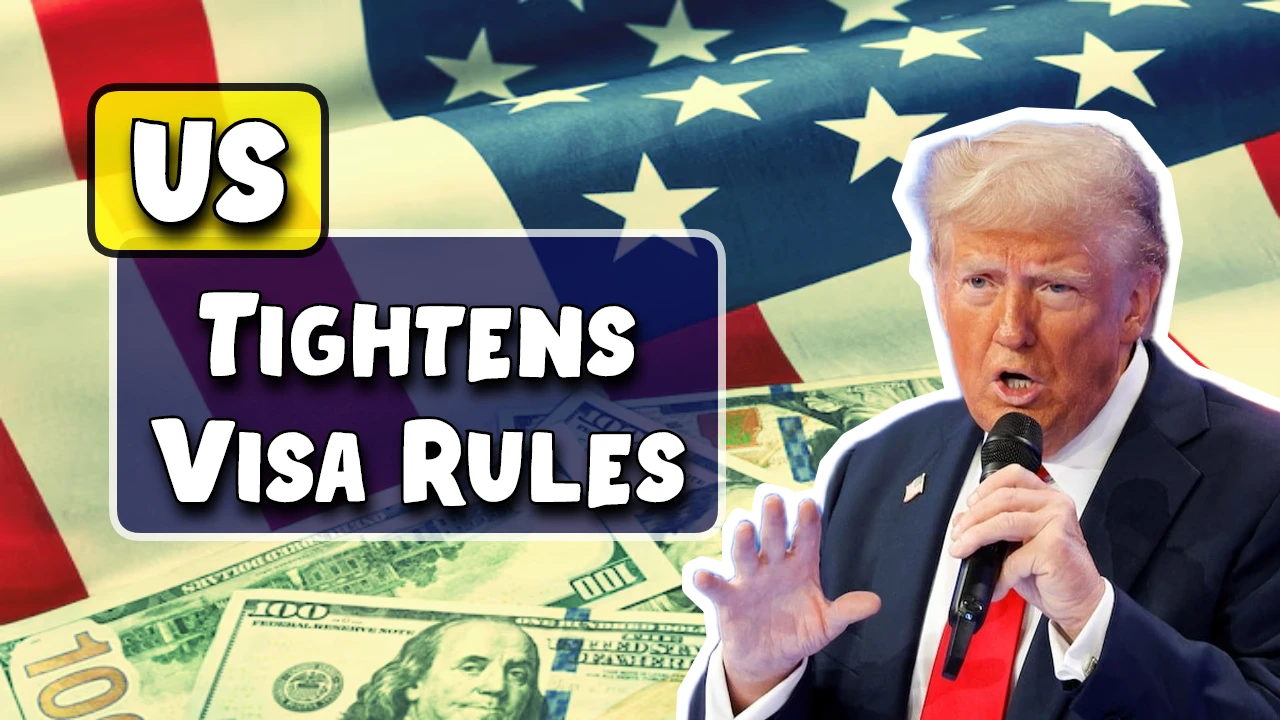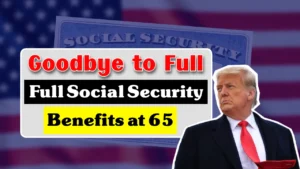The United States has historically been a magnet for nationals of other countries. Students, laborers, tourists and families travel to the United States to study, work, visit or reunite with relatives.
The U.S. government has made similar changes to its visa laws in the past, however. And the new visa regulations are more stringent than before, sweeping up many people who might have hoped to visit or live in the country.
US Tightens Visa Rules
Administration officials said the changes would enhance national security, curb illegal immigration and hold individuals accountable to doing what they said they would do when they were granted visas. For the thousands of those applicants directly affected by this, it means longer wait times, more paperwork and even more precision in filing if that was ever possible.
What the new rules are, what they might mean for who can apply for visas and what you can do to be ready to travel to the United States is information you need to have.
Stricter Screening and Background Checks
The change is one of the most significant to the U.S. visa process, whose applicants already have been undergoing more stringent screening. Now more people from other countries face deeper background checks. That can mean checking travel history, past visa use and, increasingly, what people say on Twitter. Immigration in the age of 9/11 are now increasingly careful in evaluating their applicants. They want to ensure everyone traveling to the country is doing so for the right reason and presents no threat to national security.
That is, everyone outside the U.S. seeking a visa must be honest and accurate with the U.S. government about who they are. The smallest error or omission of information can delay it, or in rare instances result in a denial of a visa. And look for more questions at visa interviews Applicants should prepare for an interview that may last longer. Some might also be requested to provide supporting documents, including documentation of previous travel history, or evidence of family and financial ties in their home country.
Effect on Student and Work Visas
The students and workers are some of the hardest hit from the new visa rules. Even foreign students who wish to attend school in the U.S. face more extensive backgrounding today. The institution should validate that the student is enrolled on a full-time course. Students have also had to demonstrate that they will return to their home country after they complete school.
For those looking for work visas like the H-1B the process just got harder. The U.S. is not at all happy with the loss of jobs by local workers. That is also why companies have to show a good faith need to hire someone from overseas. They also have to show that there is no American qualified to fill that job. That makes it more difficult for some in-demand people with the right qualifications to be approved.
And there are new time limits for how long some work visas can be used, as more users are warned to either renew their visas or face more checks. These changes are also creating new obstacles to entry for newcomers, and for re-entry for those who are hoping to come and come back to seek a better life in the country.
Changes in Visa Interview Process
This visa interview has also gotten tougher. Formerly, many applicants would have been eligible to apply for a waiver of an interview if they were renewing a visa or had already traveled to the U.S. Now more of them are being called back for in-person interviews even if they had previously been issued visas. They are doing more interview of what is the applicant’s intention history and purpose of going to the U.S.
To the easiest resume in the world being yourself If you’re who you say you are when you are right in front of someone, their day just got better. Untruthful or deceptive answers will give ground for refusal. You will also need all of your necessary paperwork. Applicants will require a passport in good condition for the visa to be affixed a visa application form, proof of payment and one photograph. Some people may also be required to submit forms such as letters showing income, invitation, admission or job offer letters, depending on their visa category.
Visa appointments are backlogged in several countries. And in some parts of the country, patients are discovering that it could take weeks, if not months, to get such an appointment. Accordingly, people will need to be ready and voice appointments are in time, which also students and Bulge persons committed beginning dates.
Visa Appointment Confirmation letter
- Confirmation of Visa Application Fee Payment (Pay at Bank Cashier)
- New photograph of passport size (not meeting the US requirements)
- Proof of SEVIS fee payment (for student visas)
- I-20 if you are a student or job offer letter (if a work visa is being applied for)
- Evidence that you can financially support yourself whilst you are here (financial documents)
- Copies of old passport and visa (If any)
- These papers can be the source of much stress and it can save you a lot of time if you have them ready and know where they are. They have copies of everything at the front of attractions.
Advice for Future Visa Applicants
Now, under those new rules, anyone contemplating applying for a visa to the United States should be even more cautious. It would also have to make sure that the trip’s purpose matched up to the type of visa that had been requested.
Candidates cannot lie and must be up to the point of interrogation. It may help to rehearse common questions prior to the interview as well. Having a presentable appearance also doesn’t hurt, and showing up late to the embassy or consulate doesn’t either. In other cases, officers disbelieve because of the too many travel plans, or too not-super-clear reasons for coming. Demonstrating strong links to your home country, is an indication that you will leave after your planned stay.
FAQs
So what if my U.S. visa application is denied under the new rules?
You can reapply with proof or better grounds.
Are student visas being granted?
Yes, but they are now more comprehensive.
How early should I apply now?
It is advised you to make the application at 2 – 3 months in advance of your intended date of travel.



